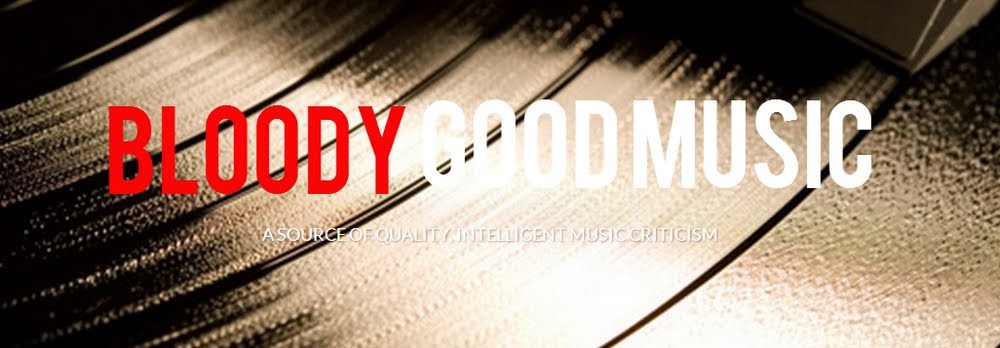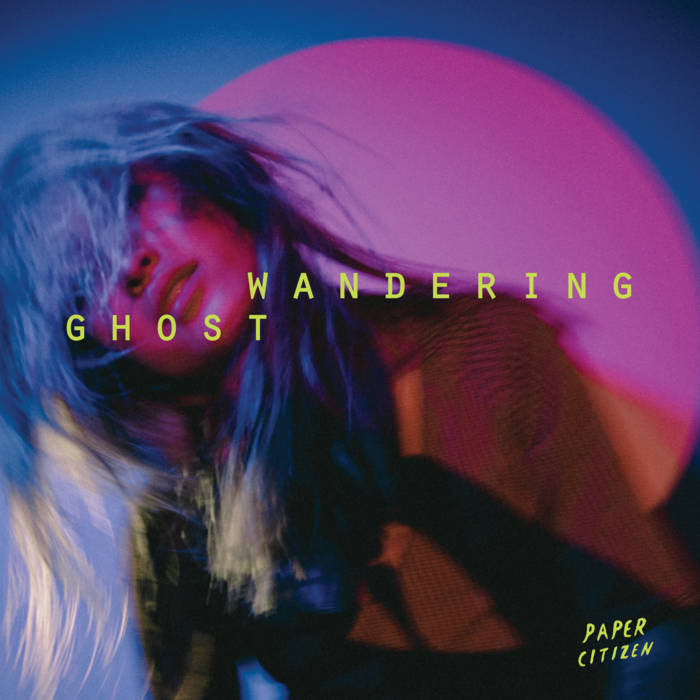Success was the worst thing that ever happened to The Offspring. Hear me out. When "Smash" became the biggest independent album of all time, they were still a punk band through and through, who just so happened to write songs that were as catchy as anything the burgeoning pop-punk scene would later come up with, just without the snarky, cheeky attitude. Regardless of the stupid way I found it, "Smash" was one of the albums that defined teenage angst in that time, and no matter how dated the production might sound right now, it's still a damn great album. It was lightning in a bottle, and chasing the storm would soon lead the band headlong into disaster.
"Americana" ruined The Offspring. Now that they had tasted success, they tried to replicate it. The budget got bigger, the target was raised higher, and in order to weasel their way into more minds, they had to dumb themselves down. Music for the masses must, in a way, be music for the lowest common denominator. That is where "Americana" found The Offspring.
It is an album that fails across many levels. There are the handful of great songs, but they were already finding themselves being more repetitive, lazier, and dumber. The cover of "Feelings" was a way of sounding subversive, but actually filling up a track on the record without having to write one. "Staring At The Sun" builds like an approaching freight train, but it's two verses that are both repeated twice. The band was being lazy, maybe because they knew they already had the songs they needed to keep the ride going, so the rest didn't matter.
"Pretty Fly For A White Guy" and "Why Don't You Get A Job?" are the nadir of The Offspring's career. Both are novelty songs that happened to explode in the public consciousness. Both are truly awful songs that set up the next decade of the band's career, the long descent we are still experiencing.
Let's look at the latter first. "Why Don't You Get A Job?" is a novelty lyrically, but mostly for it's plagiarism of The Beatles' "Ob la di, Ob la da". By taking a melody everyone already knew, and replacing the rest of the song with their cringe-inducing story, it was yet more laziness. It wasn't much different than putting out a cover song as a single, except they were trying to make us believe it was all their doing. It was, to put it in the terms of the time, the band being posers. How lame.
Then there is "Pretty Fly For A White Guy", a song that you would swear must have been a Weird Al song, if you didn't live through the time. Except that if Weird Al were to do it, the result would have been better (he did, actually; "White And Nerdy", which is superior). The song was a painful joke, treated as a joke, replayed so many times it lost even the modest chuckle it generated the first time. The more often we heard it, the less funny it got, the more annoying the poor song holding up the joke became.
When it became a big hit, The Offspring knew what they needed to do. The albums that came after all featured a novelty song to put out as a single, and bad comedy in other places. Dexter Holland has a PhD, yet chooses to come across like a teenager still watching "Beavis & Butthead" episodes and thinking they're the greatest thing ever.
"Conspiracy Of One" is a far better record, but "Original Prankster" is another pathetic novelty song that was used to trick people into listening to the better punk songs. "Special Delivery" and "One Fine Day" both venture into bro-comedy, and show that the band wanted to be as much a party outfit as they did punks. I like "Splinter" more than a lot of people, but you still get the novelty song "Hit That" as a weak single, along with the surf novelty "Da Hui", and the truly painfully unfunny "When You're In Prison". And after that, no one was even paying attention anymore, so we don't need to talk about those records.
But with nine years of silence, people are actually interested in what The Offspring have in store for us again. They have been working on this record for at least five years, and they tell us they have multiple albums worth of songs, and what they have given us.....
Sucks.
The two singles put out before release mercifully kept me from ever thinking the band was going to recover. The title track is a horrible composition. Based on a pun, the segments of the song don't fit together at all, nor is the main thrust of it enjoyable to listen to. It's hokey as have been all their lead singles, but it's cheesy without even the glint of being funny. It sounds like old men trying to sound young, which is one of the saddest things you can imagine. And let's not get started on Dexter's line about "Mexicans, Blacks, and Jews". Then there is "We Never Have Sex Anymore", which is a weak song built on a tired complaint. It isn't funny, or insightful, or even well-written blandness. As much as Dexter's line on "Bad Habit" all those years ago about waving his gun around to shut people up has aged incredibly poorly, he's old enough now to know how bad a lyricist he is, yet he continues.
But the worst is yet to come. In some ways, the centerpiece of this album is "Gone Away". Yes, the same "Gone Away" from "Ixnay On The Hombre". The Offspring are revisiting one of their own songs and putting it on this album, and not for any noble reason. They didn't have an artistic revelation that meant they needed to present the song to us in a new way. No, they are doing this specifically because Five Finger Death Punch had a big hit (in the rock scene) with a cover of it, and the band obviously feels like they should be able to ride the popularity of their own song. Or they feel like they can play it better in this guise. Both might be true, but to waste a slot on this album with a cover of their own song, for such ignoble intentions, is hard to swallow.
I almost don't need to say anything else about this album. What could be worse than saying they are reacting to what Five Finger Death Punch has done?
There is more I could say, though. I could mention how they waste a minute of such a short album with an interpretation of "In The Hall Of The Mountain King", or how "The Opioid Diaries" tackles the same ground "The Kids Aren't Alright" did, only worse, or how Dexter's diction is so unclear at one point it sounds like he's singing about Donkey Kong.
The whole record, like most of their career now that I've looked back at it, is a combination of bad comedy and playing to macho stereotypes. I don't know if Dexter believes this crap, or if he's playing to what he thinks the punk audience wants, but there's no reason or excuse for a line about his woman at least leaving dinner on the stove for him. All the times he's called women bitches and hos over the years are boiled down in that one line, and it leaves a very sour taste in my mouth. It's like the reaction I had a few years ago when revisiting Weezer's "Pinkerton". I'm deeply saddened to realize the toxicity music was putting into my head when I was younger.
The only good thing I can say about this record is that it opened my eyes to things I always knew about The Offspring, but hadn't really thought enough about. Now that I have, they look very different to me. Bad times, indeed.











